-
 bitcoin
bitcoin $87959.907984 USD
1.34% -
 ethereum
ethereum $2920.497338 USD
3.04% -
 tether
tether $0.999775 USD
0.00% -
 xrp
xrp $2.237324 USD
8.12% -
 bnb
bnb $860.243768 USD
0.90% -
 solana
solana $138.089498 USD
5.43% -
 usd-coin
usd-coin $0.999807 USD
0.01% -
 tron
tron $0.272801 USD
-1.53% -
 dogecoin
dogecoin $0.150904 USD
2.96% -
 cardano
cardano $0.421635 USD
1.97% -
 hyperliquid
hyperliquid $32.152445 USD
2.23% -
 bitcoin-cash
bitcoin-cash $533.301069 USD
-1.94% -
 chainlink
chainlink $12.953417 USD
2.68% -
 unus-sed-leo
unus-sed-leo $9.535951 USD
0.73% -
 zcash
zcash $521.483386 USD
-2.87%
Three consecutive negatives at the top: The meanings of different positions are very different
"Three consecutive bearish candles at the top of an uptrend may signal a potential reversal, indicating weakening buying pressure and rising selling momentum."
Jun 19, 2025 at 12:35 am
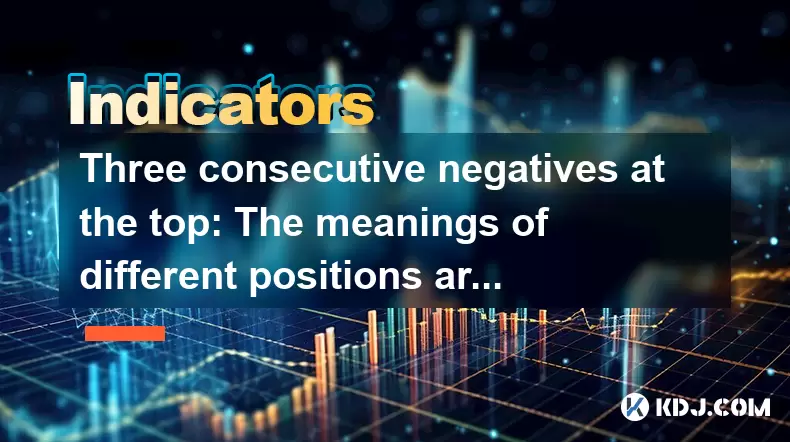
Understanding the Concept of 'Three Consecutive Negatives at the Top'
In cryptocurrency trading, candlestick patterns are often used to analyze market sentiment and predict future price movements. The phrase 'three consecutive negatives at the top' refers to a situation where, after a strong upward trend, three consecutive bearish (negative) candles appear on the chart. This pattern is significant because it may indicate a potential reversal from an uptrend to a downtrend.
The key here is understanding what constitutes a 'negative' candle — typically, this means that the closing price is lower than the opening price. When this happens three times in a row following a rally, it suggests that buying pressure is weakening and selling pressure is increasing.
It's important to note that while this pattern may signal a reversal, it does not guarantee one. Traders should look for additional confirmation signals such as volume changes, moving average crossovers, or RSI divergence before making decisions based solely on this setup.
Why Position Matters: Context Is Everything
The same pattern can have different meanings depending on its position within the broader price structure. If three consecutive negative candles occur at the peak of an extended rally, they could signify exhaustion among buyers and a shift in control to sellers. However, if they appear during a consolidation phase or mid-trend pullback, they might just be part of normal price correction rather than a full reversal.
For instance, in a healthy uptrend, short-term pullbacks are common and even necessary for sustainable growth. A trader must assess whether the three negative candles are appearing at resistance levels, overbought conditions, or in areas with high selling volume. These factors help distinguish between a temporary dip and a meaningful trend change.
Another consideration is how these candles interact with key support and resistance levels. If they form near a previous resistance zone that has now turned into support, the likelihood of continuation increases. Conversely, if they break below critical support levels, the bearish implications become stronger.
Technical Indicators That Can Confirm the Pattern
While candlestick analysis provides visual clues, combining it with technical indicators enhances reliability. One commonly used tool is the Relative Strength Index (RSI). If the RSI shows overbought conditions (>70) when the three negative candles appear, it reinforces the idea that the market may be due for a correction.
Another helpful indicator is the Moving Average Convergence Divergence (MACD). A bearish MACD crossover occurring simultaneously with the three red candles can serve as a strong warning sign. Additionally, traders often monitor volume spikes during this pattern — a sudden increase in selling volume adds weight to the bearish case.
Using Bollinger Bands can also provide insight. If the price touches or moves outside the upper band and then forms three consecutive negatives, it might indicate that the rally has stretched too far too fast and a reversion to the mean is likely.
How to Trade the Three Consecutive Negatives at the Top
Trading this pattern requires precision and discipline. Here’s a breakdown of actionable steps:
- Identify the pattern clearly: Look for three consecutive bearish candles after a clear uptrend.
- Check for confluence: Ensure that the pattern coincides with resistance zones, overbought readings, or bearish divergences.
- Wait for confirmation: Don’t enter immediately; wait until the next candle closes below the low of the third red candle.
- Place a stop-loss above the highest point of the three candles to manage risk.
- Set profit targets using Fibonacci retracement levels or previous support zones.
Traders can also use options or futures contracts to hedge or take directional bets based on this setup. It’s crucial to avoid over-leveraging and always follow proper risk management principles.
Differentiating Between Reversal and Consolidation
One of the biggest challenges traders face is distinguishing between a true reversal and a temporary consolidation. In some cases, the three consecutive negatives at the top may simply represent a pause in the uptrend rather than a complete reversal.
To differentiate, traders should observe how the price behaves after the pattern. If the price continues to fall below key support levels and fails to regain momentum, it supports the reversal hypothesis. On the other hand, if the price stabilizes and forms a bullish engulfing candle or breaks out again, it indicates that the trend remains intact.
Monitoring order book depth and trade volume can also help. A genuine reversal usually comes with increased selling pressure and large orders being placed at lower levels. In contrast, consolidation tends to show balanced order flow and reduced volatility.
Frequently Asked Questions
What timeframes are most reliable for spotting this pattern?This pattern can appear on any timeframe, but it is more reliable on higher timeframes like 4-hour, daily, or weekly charts. Lower timeframes may produce more false signals due to increased noise and volatility.
Can this pattern occur in sideways markets?Yes, it can, but its significance diminishes in range-bound or sideways markets. In such environments, three consecutive red candles may just reflect normal oscillation rather than a meaningful trend change.
Is it possible for the pattern to fail?Absolutely. No single candlestick pattern guarantees outcomes. There are many instances where prices rebounded strongly after forming three red candles at the top. Always combine this observation with other confirming tools.
Should I always take action when this pattern appears?No. Only act when there is sufficient confluence with other indicators or structural elements. Blindly trading candlestick patterns without context can lead to losses.
Disclaimer:info@kdj.com
The information provided is not trading advice. kdj.com does not assume any responsibility for any investments made based on the information provided in this article. Cryptocurrencies are highly volatile and it is highly recommended that you invest with caution after thorough research!
If you believe that the content used on this website infringes your copyright, please contact us immediately (info@kdj.com) and we will delete it promptly.
- Vitalik Buterin Rethinks Ethereum's L2 Chains: A New Era for Scalability and Privacy?
- 2026-02-05 22:20:01
- Espresso's Tokenomics Unveiled, Coinbase Roadmap Sparks Interest, and a Look at Modern Tokenomics
- 2026-02-05 22:15:01
- UBS Embraces Crypto and Bitcoin: A Strategic Pivot Towards Tokenization
- 2026-02-05 22:25:01
- Bitcoin Crash Triggers Altcoin Rotation: Navigating Investment Amidst Crypto Volatility
- 2026-02-05 22:20:01
- Crypto Crossroads: Big Bets, Bitter Losses, and Evolving Bitcoin Strategies
- 2026-02-05 22:15:01
- Digital Assets Go Big: London Forum Hails Stablecoin Surge and Institutional Onslaught
- 2026-02-05 22:10:02
Related knowledge
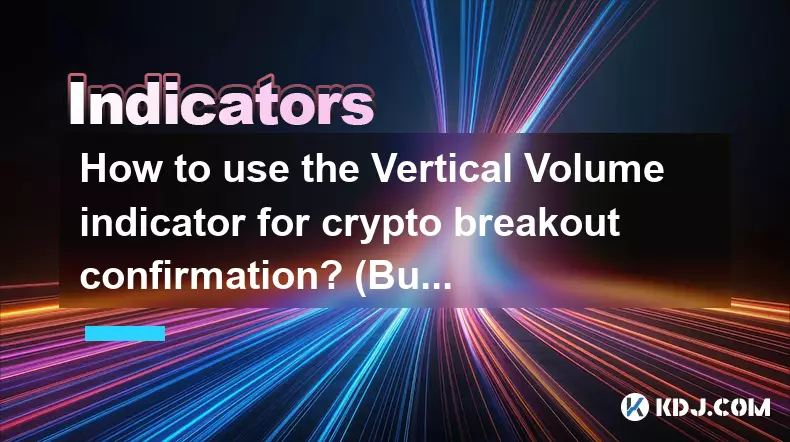
How to use the Vertical Volume indicator for crypto breakout confirmation? (Buying Pressure)
Feb 05,2026 at 04:19am
Understanding Vertical Volume in Crypto Markets1. Vertical Volume displays the total traded volume at specific price levels on a chart, visualized as ...
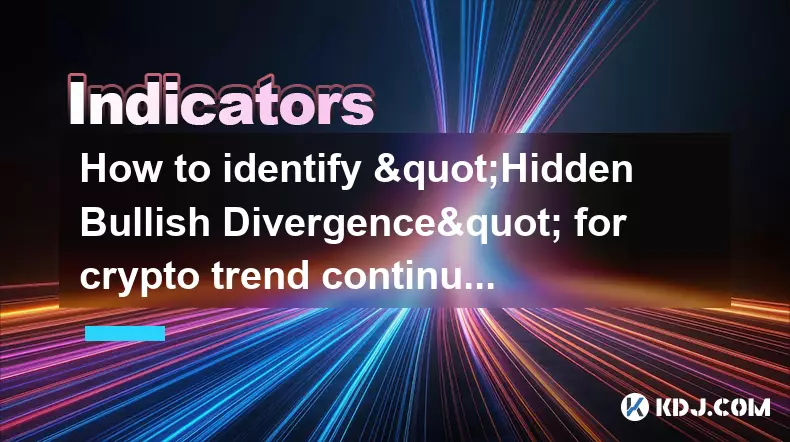
How to identify "Hidden Bullish Divergence" for crypto trend continuation? (RSI Guide)
Feb 04,2026 at 05:19pm
Understanding Hidden Bullish Divergence1. Hidden bullish divergence occurs when price forms a higher low while the RSI forms a lower low — signaling u...

How to use the Anchored VWAP for crypto support and resistance? (Specific Events)
Feb 05,2026 at 01:39am
Anchored VWAP Basics in Crypto Markets1. Anchored Volume Weighted Average Price (VWAP) is a dynamic benchmark that calculates the average price of an ...
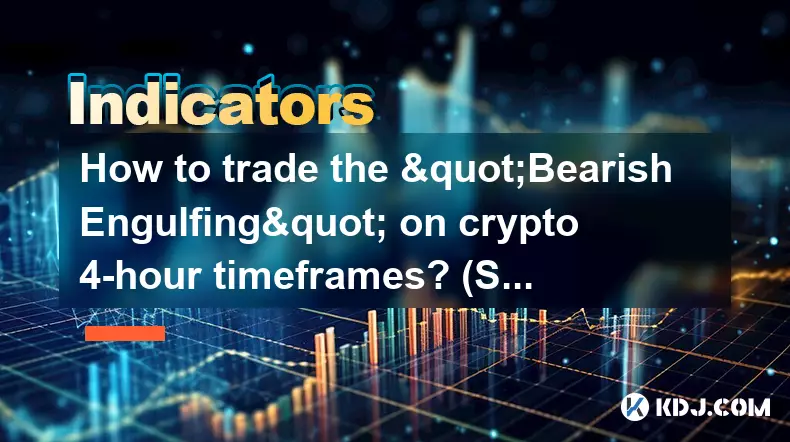
How to trade the "Bearish Engulfing" on crypto 4-hour timeframes? (Short Setup)
Feb 04,2026 at 09:19pm
Bearish Engulfing Pattern Recognition1. A Bearish Engulfing forms when a small bullish candle is immediately followed by a larger bearish candle whose...

How to use the Force Index for crypto trend validation? (Price and Volume)
Feb 04,2026 at 10:40pm
Understanding the Force Index Fundamentals1. The Force Index measures the power behind price movements by combining price change and trading volume in...
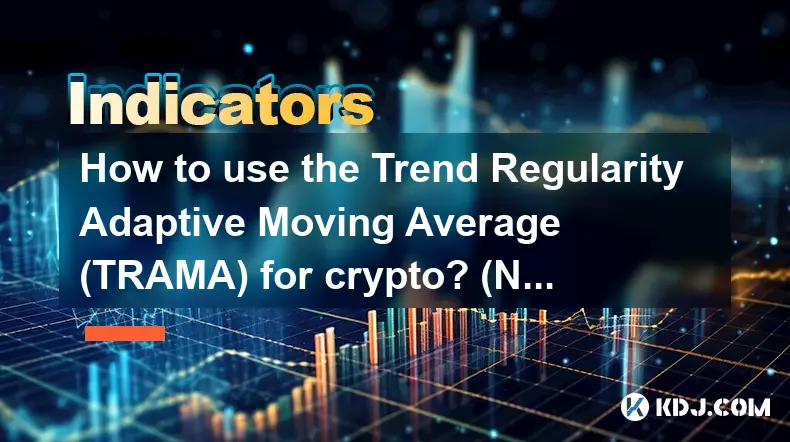
How to use the Trend Regularity Adaptive Moving Average (TRAMA) for crypto? (Noise Filter)
Feb 04,2026 at 07:39pm
Understanding TRAMA Fundamentals1. TRAMA is a dynamic moving average designed to adapt to changing market volatility and trend strength in cryptocurre...

How to use the Vertical Volume indicator for crypto breakout confirmation? (Buying Pressure)
Feb 05,2026 at 04:19am
Understanding Vertical Volume in Crypto Markets1. Vertical Volume displays the total traded volume at specific price levels on a chart, visualized as ...

How to identify "Hidden Bullish Divergence" for crypto trend continuation? (RSI Guide)
Feb 04,2026 at 05:19pm
Understanding Hidden Bullish Divergence1. Hidden bullish divergence occurs when price forms a higher low while the RSI forms a lower low — signaling u...

How to use the Anchored VWAP for crypto support and resistance? (Specific Events)
Feb 05,2026 at 01:39am
Anchored VWAP Basics in Crypto Markets1. Anchored Volume Weighted Average Price (VWAP) is a dynamic benchmark that calculates the average price of an ...

How to trade the "Bearish Engulfing" on crypto 4-hour timeframes? (Short Setup)
Feb 04,2026 at 09:19pm
Bearish Engulfing Pattern Recognition1. A Bearish Engulfing forms when a small bullish candle is immediately followed by a larger bearish candle whose...

How to use the Force Index for crypto trend validation? (Price and Volume)
Feb 04,2026 at 10:40pm
Understanding the Force Index Fundamentals1. The Force Index measures the power behind price movements by combining price change and trading volume in...

How to use the Trend Regularity Adaptive Moving Average (TRAMA) for crypto? (Noise Filter)
Feb 04,2026 at 07:39pm
Understanding TRAMA Fundamentals1. TRAMA is a dynamic moving average designed to adapt to changing market volatility and trend strength in cryptocurre...
See all articles























![KING vs PAINIFY😳 (1v1 ZONEWARS) [FORTNITE TOKEN/WAGER] KING vs PAINIFY😳 (1v1 ZONEWARS) [FORTNITE TOKEN/WAGER]](/uploads/2026/02/05/cryptocurrencies-news/videos/origin_6984035326d58_image_500_375.webp)
![2/4 [U.S. Hot Search] CIA: Xi Jinping is a paranoid | Xi Jinping’s two phone calls | Shandong’s “Internet-addicted” teenagers rebelled against tyranny | A direct attack on the Chengdu hacker national team | Why GDP must grow by 5% | The bridge under construction by the China Railway 12th Bureau collapsed | Thousands of billions of dollars spent abroad and thirty billion domestic subsidies | 2/4 [U.S. Hot Search] CIA: Xi Jinping is a paranoid | Xi Jinping’s two phone calls | Shandong’s “Internet-addicted” teenagers rebelled against tyranny | A direct attack on the Chengdu hacker national team | Why GDP must grow by 5% | The bridge under construction by the China Railway 12th Bureau collapsed | Thousands of billions of dollars spent abroad and thirty billion domestic subsidies |](/uploads/2026/02/05/cryptocurrencies-news/videos/origin_69840a757417b_image_500_375.webp)

















































